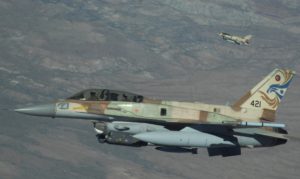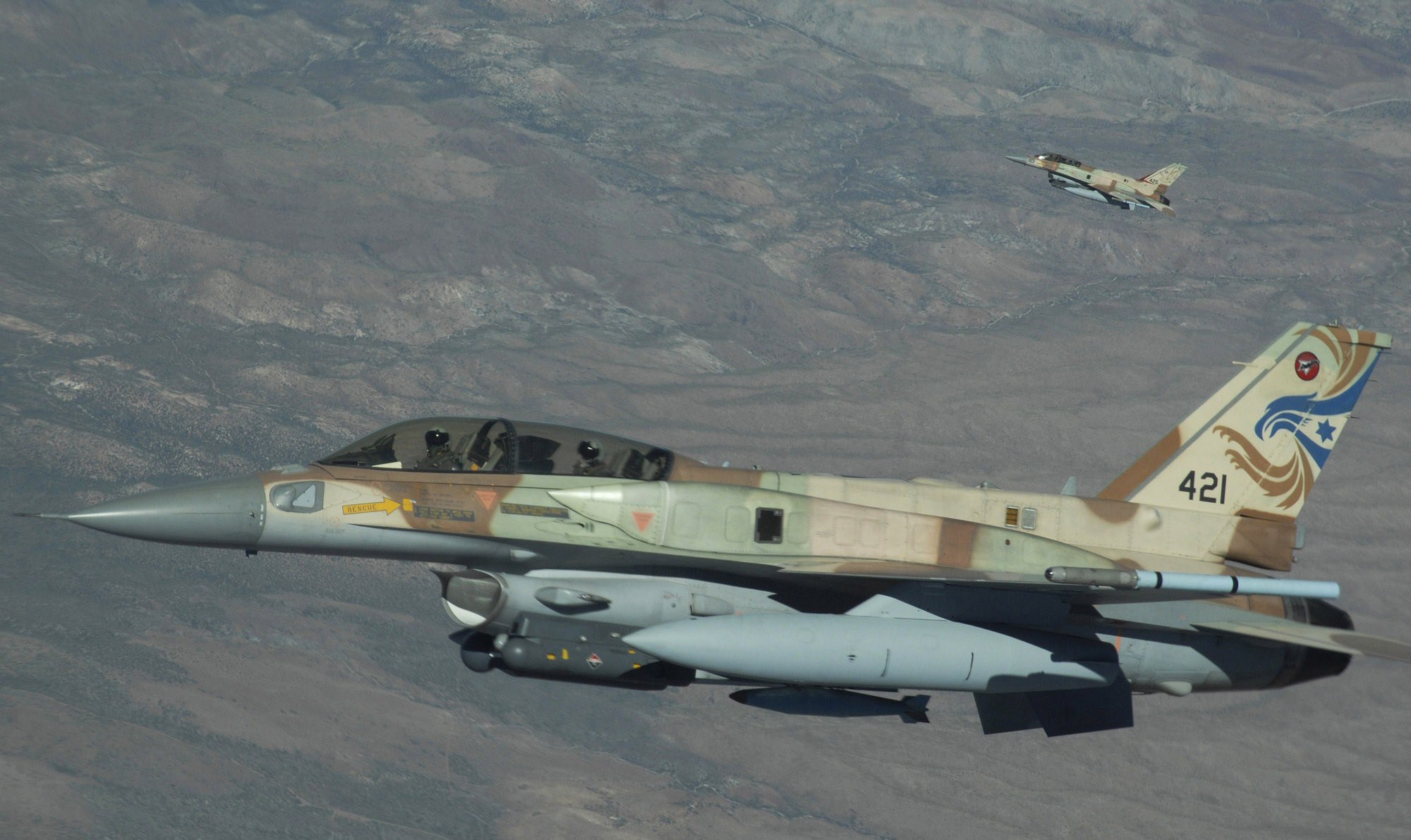05 April 2018
Syria’s Nuclear Débâcle
A warning to Iran from Israel.
By Neil Tidmarsh
 What a secret! How did they keep the lid on that for over ten years? Why did they keep the lid on it? And why have they now decided to spill the beans about it? And what if..?
What a secret! How did they keep the lid on that for over ten years? Why did they keep the lid on it? And why have they now decided to spill the beans about it? And what if..?
Israel’s government dropped the bombshell about its bombshells last week, admitting that on 05 September 2007, a secret operation by the Israeli air force destroyed Assad’s clandestine nuclear weapons program in Syria. Eight F-15 and F-16 jets, launched from the Hatzerim and Ramon air bases in the Negev desert, flew for two hours over the eastern Mediterranean and into northern Syria, to fire sixteen guided bombs at the al-Kibar nuclear reactor under construction near the city of Deir Ezzor. The attack destroyed the reactor and brought Syria’s attempts to develop a nuclear capability to an abrupt end.
Who knew Assad was developing nuclear weapons? And what if he had succeeded? What if Israel hadn’t destroyed that reactor? The very idea chills the blood. The nightmare potentials of Syria’s messy and horrifying civil conflicts are frightening enough as it is (the war edges ever closer to an international apocalypse as Turkey wades in and regime aggression makes it increasingly difficult for Saudi Arabia, Israel and the USA to avoid direct confrontation with Assad and his backers Russia and Iran), without imagining nuclear weapons thrown into the mix as well. In the last four years, remember, Deir Ezzor (and presumably the site of the al-Kibar reactor) has been continually fought over. It has changed hands three times: the rebels took it from the regime, Isis took it from the rebels, and the regime took it from Isis.

Rumours about the attack on al-Kibar did apparently emerge in leaks from the region and in reports by foreign intelligence agencies at the time, but by and large the episode was shrouded in secrecy from the very beginning. Assad had always denied that he had any ambition to make Syria a nuclear power. When Mossad discovered the existence of the al-Kabir reactor in March 2017, Israel decided to stay quiet about it. The attack was planned and executed in great secrecy; the planes flew at under 100m over northern Syria to avoid detection by radar, and electronic interference from Israel confused Syrian air defences. Even after the attack, Israel stayed silent about it rather than broadcast its amazing triumph to the world: the military authorities banned any reference to it, they didn’t dispute a Syrian report that an attack by the Israeli airforce had been repulsed, and they told the media that the target had been a battery of SA-18 anti-aircraft missiles supplied by Russia.
Why the silence? To save Assad’s face. That seems like a paradox, but it isn’t. Israel guessed, wisely and accurately, that Assad would be unlikely to react if they kept quiet about it; but if they humiliated him in the eyes of the world, then he would be forced to retaliate. So they didn’t, and he didn’t.
So why has Israel let the cat out of the bag now? A banal explanation is that Ehud Olmert and Ehud Barak, who were prime minister and defence minister in 2007, are both about to publish memoirs in which they’re likely to compete for credit for the operation’s success.
But it must be no accident that the disclosure coincides with a renewed effort by Israel and the USA to put pressure on Iran. Israel is deeply worried that its sworn enemy Iran – an embryonic nuclear power – now has an established presence on its doorstep in Syria. Donald Trump and Israel both insist that the deal which Obama struck with Tehran is so weak that it encourages rather than discourages Iran’s nuclear ambitions, while dangerously enriching a hostile regime by dropping sanctions. Last month, Trump appointed the anti-Iran hawks Mike Pompeo and John Bolton as head of the State Department and national security adviser; next month, the Iran deal is up for certification by the president, and Trump is threatening to de-certify it and reimpose sanctions unless Tehran agrees to submit to a more vigorous monitoring regime. Since 1981 when it destroyed Saddam Hussein’s nuclear facilities in Iraq, Israel has insisted that it will never allow an enemy in the region to develop nuclear weapons; last week’s admission was surely a timely reminder of its commitment to this “Begin Doctrine”, a reminder intended to make Tehran more receptive to Washington’s demands.
Of course, Iran is even further away from Israel than Syria or Iraq, but this week the Kuwaiti newspaper al-Jarida (believed to be a mouthpiece for Israel in the Arab world) reported that Israel’s new long-range stealth fighter-jet – the F-35 – is capable of flying non-stop from Israel to Iran twice a day, and in fact has recently flown into Iranian airspace and over its nuclear bases from Israel without being detected.
The final question which last week’s admission begs is “What else has been going on in Syria which we haven’t heard about?” And that question was answered in pretty short order. There was an interview with an ex-GRU (Russian military intelligence) officer and Russian security expert, Boris Volodarsky, in The Times magazine last weekend. He claimed that Russia has been developing chemical weapons in Syria for decades, at a base known as the Scientific Studies and Research Centre. He also disclosed that the centre was bombed by the Israelis, “acting on American and British intelligence”, last December.
He suggested, moreover, that the attack on the Skripols in Salisbury was a response to that bombing, and that the murder weapon was deliberately chosen to make that clear to Britain and the US; the nerve agent Novichok, he says, is one of chemical weapons produced at that centre in Syria.


